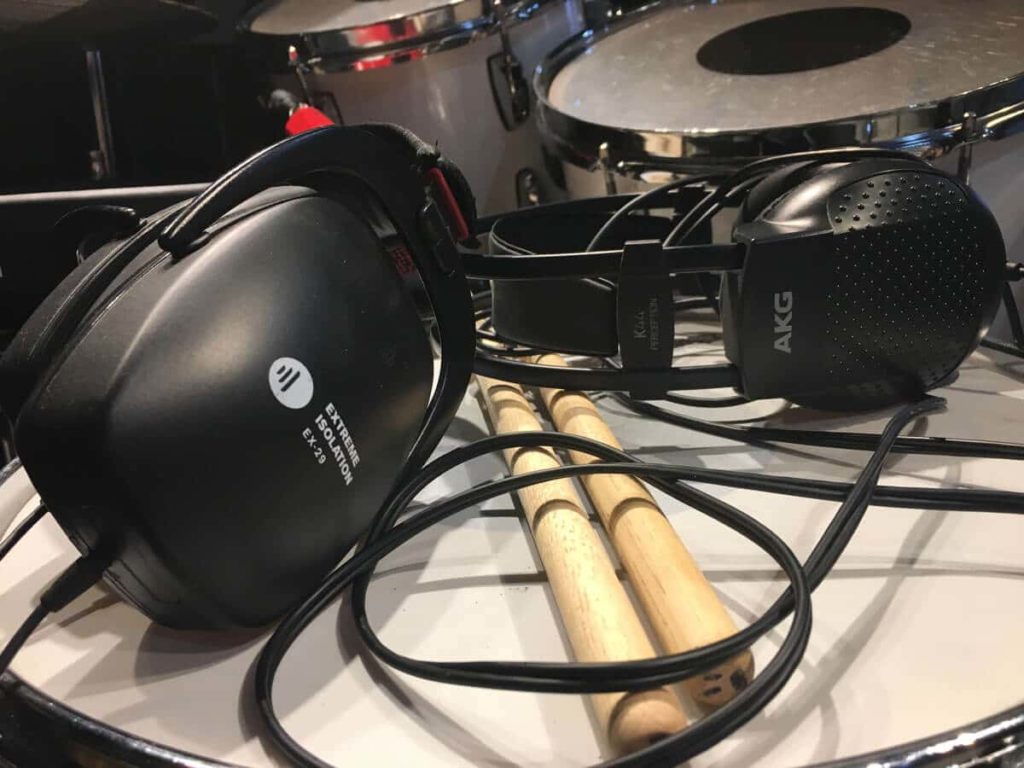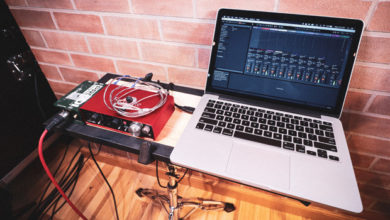
We may earn a commission from the affiliate links on this site. Learn more›
I’m sitting here at my practice studio and I began wondering, what is the best age to start drum lessons?
When I was growing up, I was fortunate enough that my parents even allowed me to play the drums when I turned nine years old.
While the best age for starting drum lessons can vary, the generally accepted age to begin is between nine and thirteen. This is a decision that should be made between you, your child, and a professional drum teacher. With varying opinions and different skills levels between ages, starting your child off at three years old could be a great idea or a waste of money.
The General Consensus

The best age that is generally accepted is between 9 and 13.
However, students ages vary, as many teachers have students that are younger than five. One thing’s for sure: discipline is a requirement. Depending on how motivated and behaved your child is will ultimately determine their success as a drummer.
Many young students who take private lessons will just want to “play” while in a session with a teacher. These types of young students will not be will to put in the necessary hard work and hours required to learn a new exercise or groove.
You, as a parent, are able to help your child out before deciding to take drum lessons by understanding the basics of drumming, reading basic drum notation, and teaching the child yourself in some cases.

The “exploration” will bring along a bonding experience for you and your child, according to Durham Drum Lessons.
This will bring you closer to your child and give you a better understanding
When you do finally sign your child up, it’s important that you sit in on these lessons with the instructor. Your child should behave more, in theory, and you will take a greater understanding in as to what the instructor is teaching your child.
You can then help them when they bring the material home to practice.
Some people on the internet recommend you wait until your child is at least six years old to learn the drums. Why is this a bad idea?
Take a look at this fantastic young drummer. While this might not be the case for everyone, it is possible to see success out of a child so young. Why strip them of that if they want to do it?!
Others also think that private lessons are a waste of time up until the age of six. They insist that your child should hit the drums on their own until they are ready for drum lessons.
This might ultimately save you money in the long run. Use YouTube as your resource! There is tons of great content available, specifically targeted at young drummers!
And beyond that, there are tons of great resources available for online lessons, so don’t be afraid to search! We’ve written about ten of our favorite resources for online drum lessons, so don’t miss it (Drumeo is the best option for kids and beginners, by far).
And if you’re looking for a more in-person approach and don’t know where to begin, don’t miss our article on how to find a drum teacher.
If you are considering buying your child a drum set, be sure to read our roundup article on the best drum sets for kids.
Some common myths associated with young drummers beginning lessons
- A teacher has a hard time communicating ideas to young drummer – This myth has been debunked, as colored notation systems are extremely effective with teaching children as young as two years of age. Rock band drum sets actually serve a great purpose in aiding young students when learning the drums. The earlier your child learns drum set notation, the better.
- Children under 7 years old are not ready for drum lessons – We’ve seen time and time again that young drummers are everywhere! Just type into YouTube “4 year old drummer” and you’ll find a bunch of great videos.
- Children have a short attention span and, thus, cannot learn the drums – While this may be true on its face, children can learn if they are motivated. Lesson plans may need to be split up into smaller chunks (15 minutes at a time, for example) when teaching those under the age of five.
- Children have a short attention span and, thus, cannot learn the drums – While this may be true on its face, children can learn if they are motivated. Lesson plans may need to be split up into smaller chunks (15 minutes at a time, for example) when teaching those under the age of five.
- Children don’t posses the motor function to play drums – Technique is actually sometimes learned faster at a young age. Remember, children are going to want to have fun, so make sure your lesson plan includes fun activities that are both educational and engaging.
Try drumming apps on your phone or tablet first!
Drumming apps have become very popular ever since the inception of the Apple iOS Store.
Many of these games are free (watch out for in-app purchases) and have educational games designed to give a basic understanding of independence.

Your child shouldn’t have the ability to understand that the game’s purpose is education. They will believe they are playing a game for fun.
Having this foundational experience prior to taking drum lessons will be extremely helpful and your child will progress much faster than had he or she not played those educational games.
The importance of hearing protection as a young drummer
If your child is learning the drum set at home, it’s important to protect their hearing. Children at a young age have much more sensitive hearing and that hearing can easily be damaged by the sound of a loud drum set.
Earplugs and isolation headphones
Instill it in your child’s head that they need to wear earplugs, every time they play, else they could damage their hearing.

If earplugs don’t seem like the best solution, the next bet is either earmuffs or drum isolation headphones. Your child can also play along to their favorite music via CD player, or any device that has a 3.5mm audio out, like an iPhone.
Eliminate noise altogether
If you want your child to practice in silence, consider purchasing them a drum practice pad. Practice pads are essential tools for all drummers and enable your child to practice exercises at any time of day or night.
And if noise is seriously a problem where you live (and just for your own sanity), you may want to consider checking out an electronic drum set instead. They are far quieter and offer many additional features for learning and practicing that an acoustic drum set wouldn’t otherwise offer.
Incentivize their practicing with a reward system
One way to get a child practicing is to give them a reward each week for completing the assigned tasks.
For example, you could promise them a trip to the toy store if they keep up on their homework and practicing each week. Be sure to keep it fun and positive, as a happy drummer learns faster than a frustrated one.
Get your child learning prior to taking private lessons
If you haven’t enrolled your child in lessons yet or don’t have the budget to, you can take the lead and start teaching yourself.
We have written a highly in-depth guide on drum notation that you can use as a basis for instruction your young one when they are first starting out. You will need to dedicate yourself to it, but this would be your best option.
If notation and reading music isn’t their cup of tea, you can always start off with some simple songs to learn on the drums.
Do you have a young child who is currently learning drums? Are they currently taking private lessons? Be sure to let us know in the comments down below. PS: if you’re looking for a kids drum set, we have listed our favorites at this link.
If you or your child are older, we also have a roundup of the best cheap drum sets available now.
Thanks for reading.



